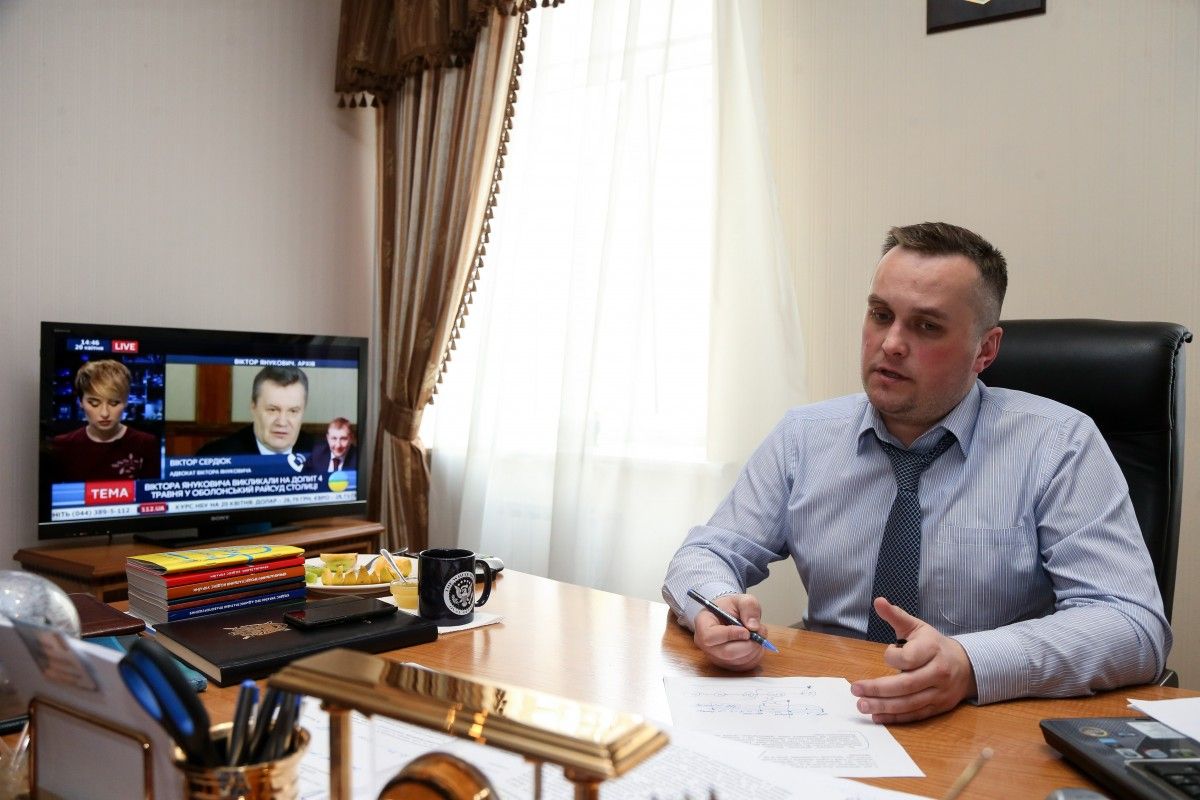
Chief anti-corruption prosecutor Nazar Kholodnytsky: "As a citizen, I also crave to see the verdicts handed down quickly… It’s so hard to be a pioneer"
Head of the Specialized Anti-Corruption Prosecutor’s Office Nazar Kholodnytsky sat down with UNIAN to tell why anti-corruption cases are investigated for so long, whether the SAP heard the notorious records promised by fugitive MP Onyshchenko, and whether the targets of the agency’s probes made any attempts to settle with prosecutors, and how successful such attempts were.
A recent study by Ernst & Young was quite embarrassing for Ukraine as it puts in the first place in Europe in terms of corruption. What are we doing wrong? Why are we on top of such rankings?
We are doing everything right, it’s just that too little time has passed since the Revolution of Dignity for us to show significant results. Indeed, being on top of such rankings is nothing to be proud of. But the creation of new anti-corruption bodies gives us the opportunity to start our fight.
Anti-corruption bodies are like children only celebrating their nearly second anniversary, but we already want them to take care of their parents. We need to understand that these kids should grow up a bit. That’s both the Specialized Anti-Corruption Prosecutor's Office [SAP] and the National Anti-Corruption Bureau [NABU]. Together, we are just getting stronger.
I would also like to add that this study is related to corruption in the corporate sector, while it can also be an indicator for the state bodies and society as a whole.
And how long will it take to see tangible results?
In Ukraine, Romania is often perceived as an example. A similar anti-corruption prosecutor's office was created there back in 2002, and we only heard of their first tangible results in 2015. Make your own conclusions now.
Such prospects are somehow discouraging. Perhaps, Ukraine will see some changes sooner?
We are doing everything for them to take place as soon as possible. If we compare the first two years of operations of the Romanian anti-corruption prosecutors and our SAP, we have shown better results. This is what I see from open sources. As regards the details, I hope to hear them from my Romanian colleagues in May, when we have our visit and meetings scheduled.
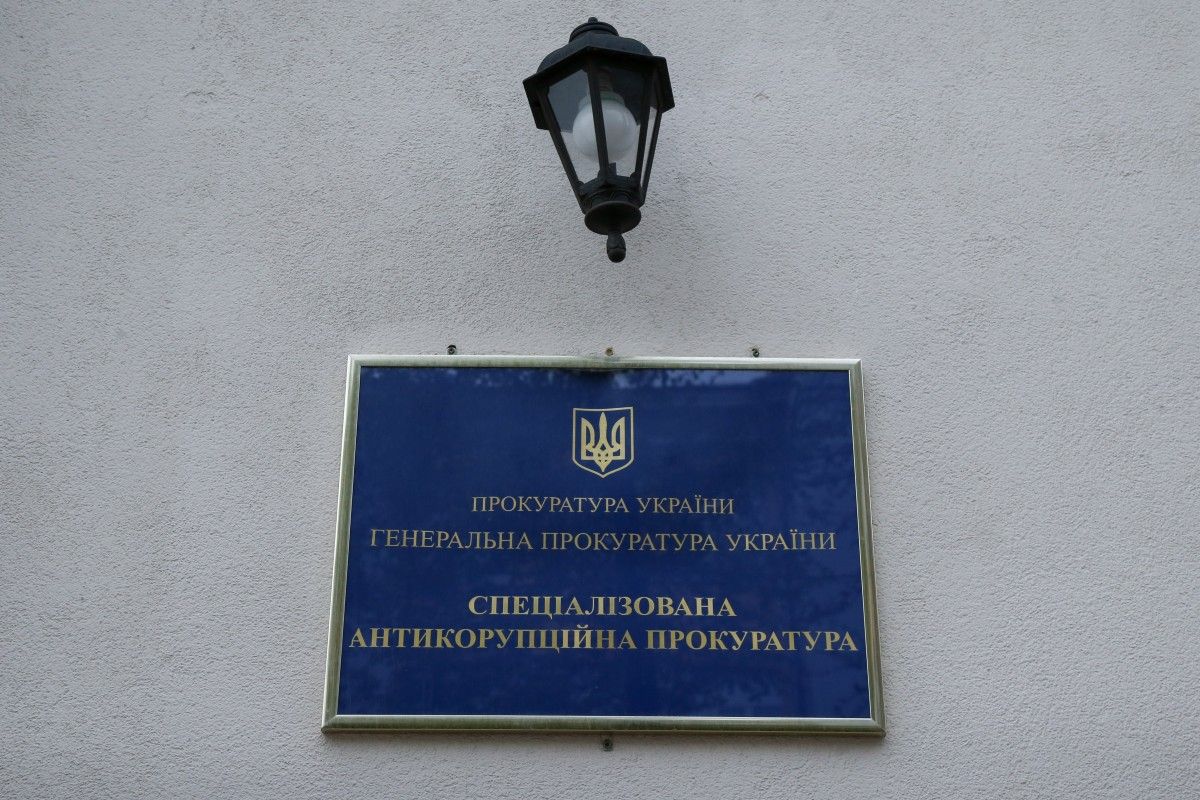
What are the results you are talking about?
It is about fine-tuning the agency’s operations, other general things like the actual start of operations, first cases, first arrests, first suspicions issued, first court hearings… The thing is that both NABU and SAP have been created from scratch.
But Ukrainian people crave to see actual verdicts...
Indeed, there have been no verdicts yet, although the public wants to see them. As a citizen, I also crave to see the verdicts handed down quickly but as a prosecutor, I act in line with the law. Neither the prosecutors nor the detectives have any right to influence the pace of trials and, as a result, the issuance of verdicts. Trials of our cases are our biggest problem because we have not yet seen the long-awaited verdicts in more than 50 cases. In more than a half or indictments, the courts haven’t even started the consideration on merits. Adjournment of hearings, disruptions of court sessions – these are things that do not depend on the prosecutor’s office. We must act within the legal field.
However, certain criticism is voiced not only toward the courts but also the NABU detectives and SAP prosecutors. Whose role is more important in bringing the cases to their logical completion, the verdict?
I wouldn't put it that way. There’s a pool of certain activists, who made their names against the background of fighting against corruption, and they enjoy talking about things like that. However, to understand the limits of anyone’s responsibility, one needs to be a law graduate.
The Constitution of Ukraine gives prosecutors the function of procedural management (formerly prosecutor's supervision). Imagine that the investigation as a straight line (Nazar Kholodnytsky starts drawing it on paper). Putting data into the Single Register of Pre-Trial Investigations is the beginning of the line. The next stage is issuing a suspicion notice. Between these events, there is a time gap. Within this period, the case is investigated into the fact of a crime rather than into an individual’s actions. Once there is a suspect in the case and he has been issued a suspicion notice, the investigation against them takes its official start. Then the case is submitted to court. That’s when the court consideration starts – the longest stage. In our realities, it’s way too long. The fourth stage is the court’s verdict.
So, where is the role of prosecutors and investigators along this straight line? Prosecutors’ role is in place throughout all stages, from the start up to the verdict. At the same time, the investigators play their role from the start to the case’s submission to court. To issue a suspicion notice, evidence must be collected; to collect evidence, interrogations, searches, seizures, covert investigative activities must be carried out, like to tap someone or to conduct surveillance. And at this stage, the detectives can’t do any of that, expect for interrogations, without the prosecutorial consent. No searches or seizures can be carried out without the prosecutorial content and the court warrant. Therefore, the prosecutors are responsible for all cases, for each motion they approve.
That’s what I’m talking about… The cases are being investigated too long, so there comes criticism of the anti-corruption bodies...
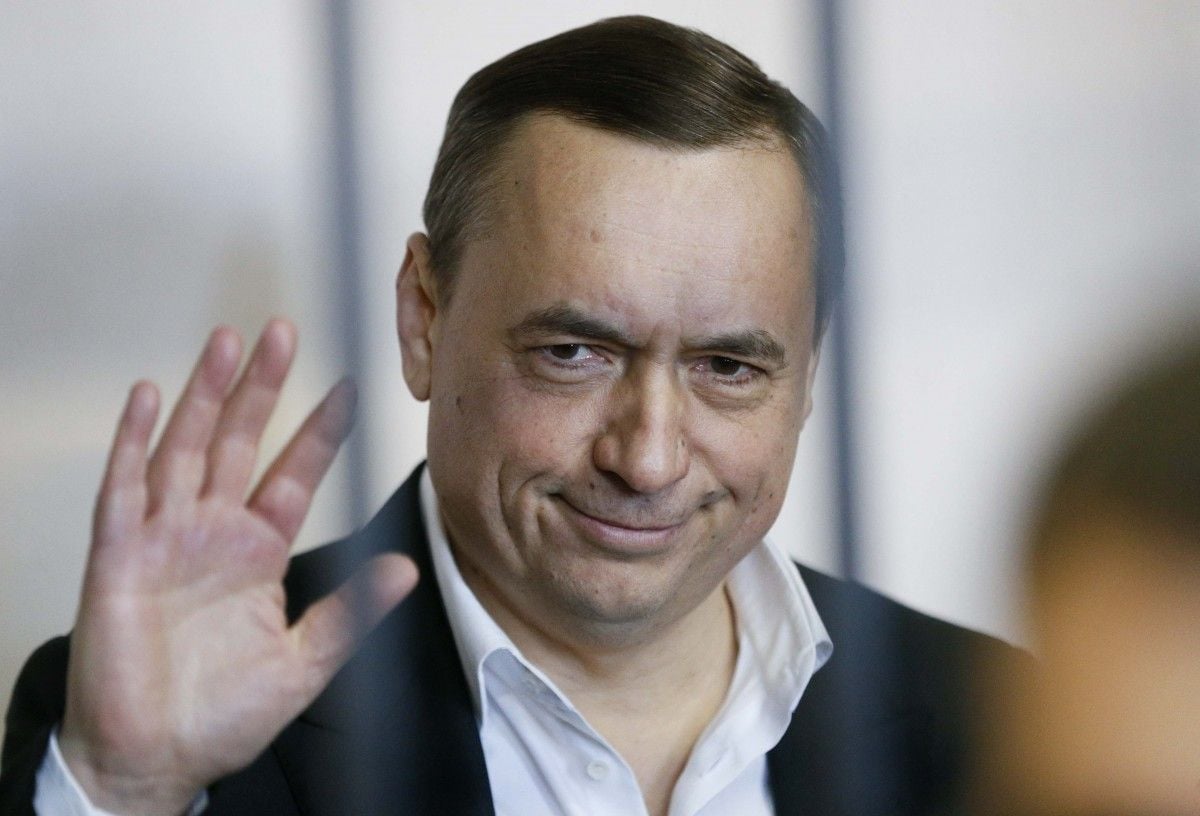
Don’t you see what kind of cases we deal with and what the suspects are? It’s not some case about a theft of a chocolate bar from a supermarket; our cases deal with complex schemes with an international element to them. The probe with a hashtag ShidGZK has lasted for more than a year and only now did we finally announced suspicion against individuals involved, including former MP Mykola Martynenko.
As I said, the thing is that the case against an individual starts with the issuance of suspicion against them, so the clock starts ticking only after this stage, according to the Criminal and Procedural Code. The investigation must be completed within two months, to submit the case to the court. But it often happens so that we can’t make it within two months, then we must prolong the investigation to four, six, nine, twelve or even eighteen months. In this case, the responsibility rests with the prosecutor. Because these deadlines are not for the investigators (many investigative units – and this is not just our problem - believe that their work has been completed at the stage of issuing a suspicion), but for the prosecutors. In any case, their duty is to finish the job on time. Therefore, they are in focus of such criticism.
It’s easy for the investigators to say that they have done well as they issued some suspicions or detained someone. That’s because, from that moment on, it would be the prosecutor who is to blame if the case can’t make it to the court, or some "corrupt" judges… That is, the position of investigators is that they have collected the evidence, issued the suspicion notice, so what else could we do? They redirect all claims toward prosecutors or the court. But hey, that’s just not the case. All participants to proceedings have their share of responsibility, therefore it’s important to understand how they’re built in legal terms.
I want to emphasize that, had we searched for those to blame all the time or why the expected results are lacking, we would’ve never seen even those insignificant results we do have today.
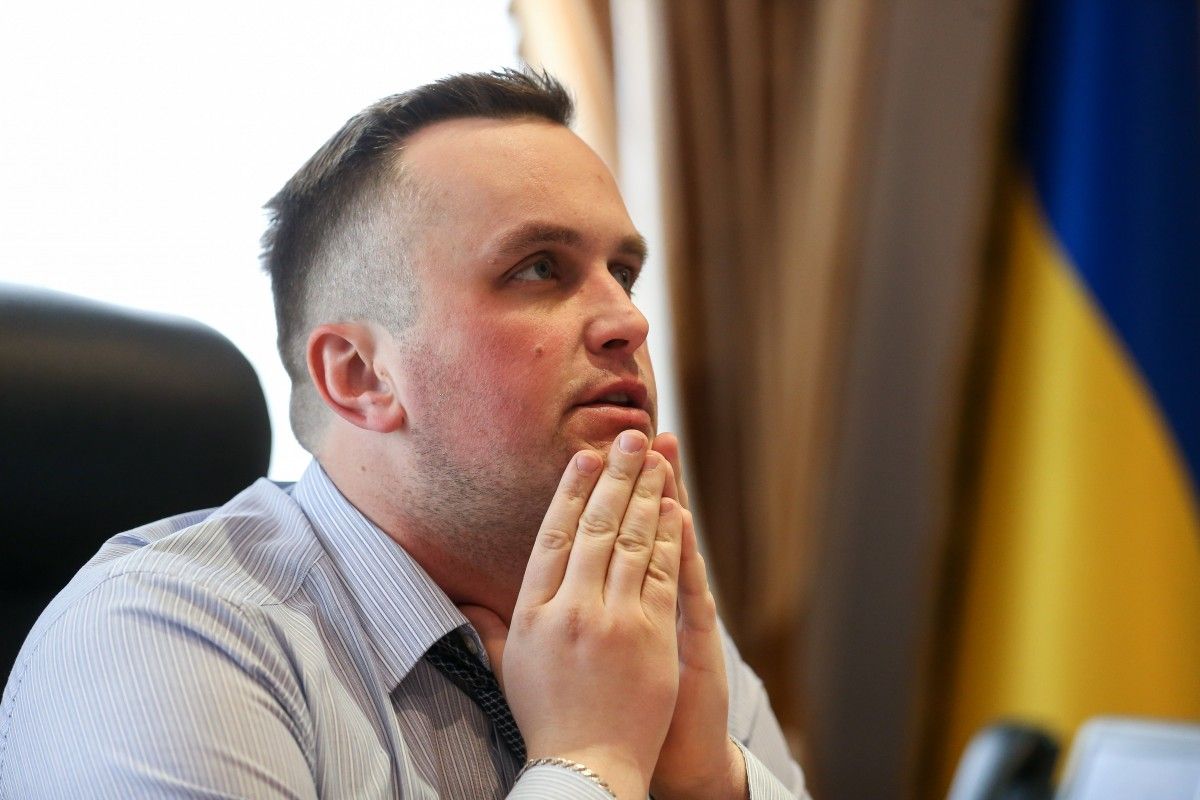
At the initial stage, it is quite difficult to achieve results, but they will be seen later. Take that Romanian experience that is being discussed so much. In 2016, they had nearly a thousand verdicts. But people seem to miss out the fact that these verdicts have been handed down in cases forwarded to court back in 2011-2012. So, I don’t rule out that my successor will one day tell everyone: “Hey, look! Kholodnytsky managed to ensure two verdicts, while I have a thousand here!” And everyone will be cheering him without taking into account that these cases have made it to the court during the former SAP chief’s tenure.
It's hard to be a pioneer in anything, moreover, the first ever anti-corruption prosecutor in one of the most corrupt countries in Europe.
Is the SAP fully staffed today?
With 52 positions, including eight or nine in the management, we still have seven vacancies.
Don’t higher wages motivate people to get employed by the SAP?
That’s not the case. If we want to quickly hire people, we have to give department chiefs an opportunity to hire without any competition. But we say that it is not a democratic way, it’s bad, it’s a closed system, so we announce staffing competitions. In my opinion, this is a positive development. After all, everyone can show their ability to become an SAP prosecutor. However, the negative side to it is that any competition always delays the employment process. That’s why we still have seven vacancies.
In addition, this four-level competition is anything but easy. For you to understand all seriousness, last year we have only selected 12 people out of 400 applicants.
If we take our statistics, out of 396 applicants, 40 or 50 failed to pass the first level, that is the knowledge of law. The second stage - an IQ test – is what the most applicants flunked: out of nearly 350 applicants, only some 75 people reached stage three. After two interviews, 12 people remained. That is, only 3% of the applicants passed the whole competition.
Another financial question: are the sums recovered and returned to the stage budget due to the investigations of the anti-corruption bodies comparable with the cost of the SAP staff?
The level of expenditures for the SAP is justified and sufficient to support the activities of the anti-corruption prosecutor’s office. And we are working on verdicts and recovery of funds to the state budget.
One of the problems with the Ukrainian corruption lays with the fact that most officials with great authority just don’t earn enough. Is it possible to hire anyone for a job that pays UAH 4,000 (some $170) a month and expect that official to fight corruption? We could do so. But in this case, we would not have seen in our investigation even those few bright things we are seeing now.
The whole country’s problem is that we are used to expect great accomplishments [from officials] with small wages.
How many cases are now being investigated by the SAP?
It’s not only about the numbers. Sometimes, PGO prosecutors boast they have completed investigation in 5,000 cases. But, one thing is completing 5,000 cases into supermarket theft and another thing is investigating a major gas deal in a case that may contain up several hundred volumes. Such circumstances must be taken into account. These cases should be compared in terms of quality rather than quantity.
We now have 319 cases being investigated. But while NABU has 250 detectives to deal with them, we only have as many as 35 prosecutors…. Divide that number and you’ll see how loaded they are.
Are all those heavyweight cases like you mentioned?
We have various cases. Some prosecutors have three cases on bribes, someone is dealing with the case of [former MP Oleksandr] Onyshchenko, someone is investigating the case of [former tax chief Roman] Nasirov or some schemes of embezzlement of assets at state-owned enterprises... We also need to understand that our “clients” have plenty of opportunities – expensive lawyers, influence over state agencies, opportunities to set up campaigns in the media and social networks. No one just accepts without resistance the investigation and possible prosecution
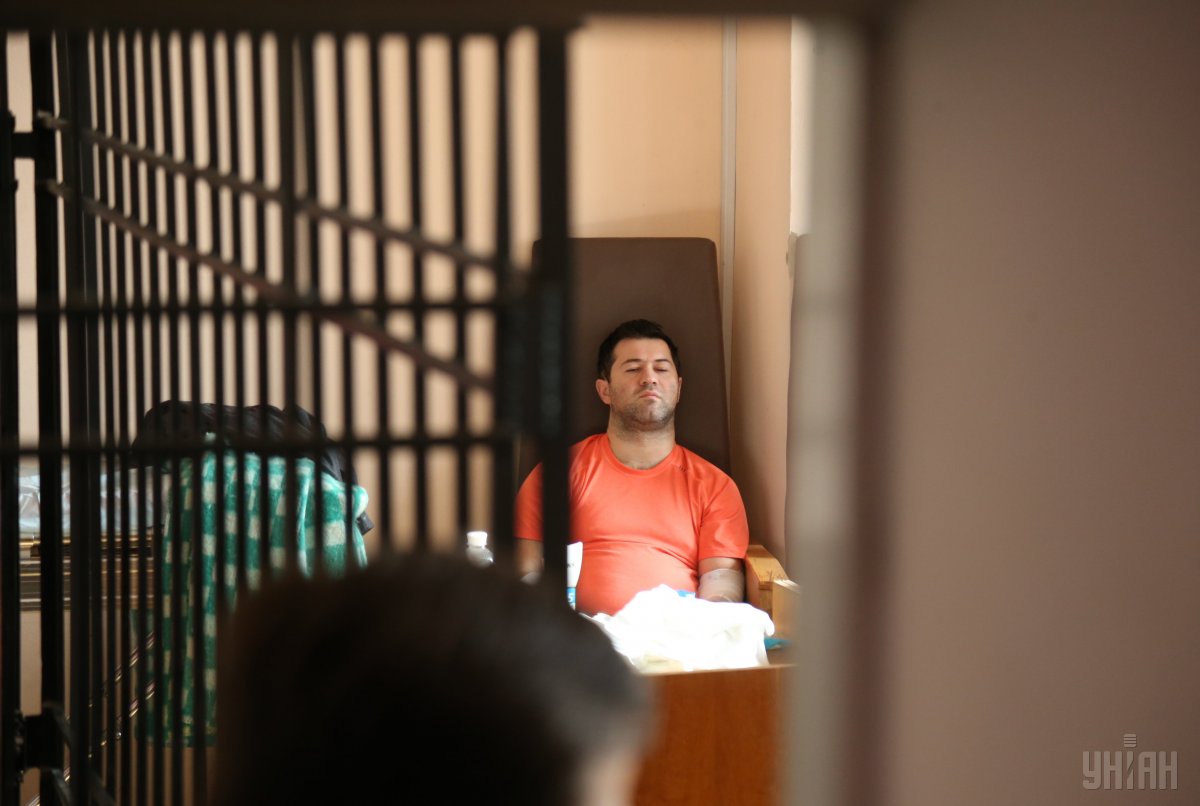
Speaking of high-profile cases... Don’t you think that your agency is not too active in informing the public on the latest developments?
We can hardly say more than NABU does. I believe sometimes such reports even go beyond the limits of secrecy of the investigation. It sometimes happens so that someone hears somewhere a report on some search to be conducted, and they run elaborating on camera on what they are planning to do in this regard. It mustn’t be that way. If we turn the investigation into the movie series, these probes would turn into some TV shows.
Of course, society should be informed about the activities of anti-corruption bodies, but we should tell them of our results, not the process. For example, we are investigating the cases into e-declarations of assets, so what? In my view, we should tell about them when we at least issue suspicion notices, not today.
How many cases like this are there, can you tell us?
I believe, there is nearly 40 of them. But I once again want to emphasize that there will be some sense talking about them when these cases make it to the court. We don’t want to declare anything until the information is confirmed. If we do, there will be no cases in court and no verdicts; there will only be criticism claiming someone doesn’t perform well, and someone has sold their soul. I repeat – we should tell people of our results.
But we can wait for years to see some results. For example, we haven’t heard anything for a while about the case of "diamond prosecutors." If not for the activists and journalists who sometimes raise the subject, it seems that this case would have been completely forgotten...
It is not surprising that the public wants quick results. But quick results are unlikely to be of good quality.
As for the issue of following the developments in cases, we publish weekly schedules of court hearings – please, come and watch. But, unfortunately, some things get distorted too often. While there is some benefit, there will always be some peculiar interest in certain cases. It often happens so that some principled activists over time re-emerge in some party lists. That is, they exploit activism to get into power. By the way, when the next elections come, it will be a kind of a marker for me, to see which activists appear in various party lists, or who of them run as independent candidates.
The most interesting cases are those involving names and offices familiar to most Ukrainians. Nasirov was the Head of the State Fiscal Service, Okhendovsky – a Chairman of the Central Election Commission, Onyshchenko is a former MP, telling about some suitcases with cash...
I'm positive that doing a show for the media is a bad thing, we need to follow the law.
The problem of public perception of the Nasirov case is that he is the fiscal chief, and no one likes fiscal officers as nobody likes to pay taxes. Okhendovsky is negatively perceived by the public for the very same reasons. But my job as a prosecutor is to put people in jail not because they head a fiscal agency or the election commission but because this particular person has committed a particular crime. My task is to prove the commission of this crime. And if I fail to prove it, I have to close the case, acting according to the law. We can’t build the rule of law using unlawful means. You can’t put people in jail only based on hate posts on social networks and public desire to see them prosecuted.
What cases are now under investigation related to public enterprises? Could you give us any details?
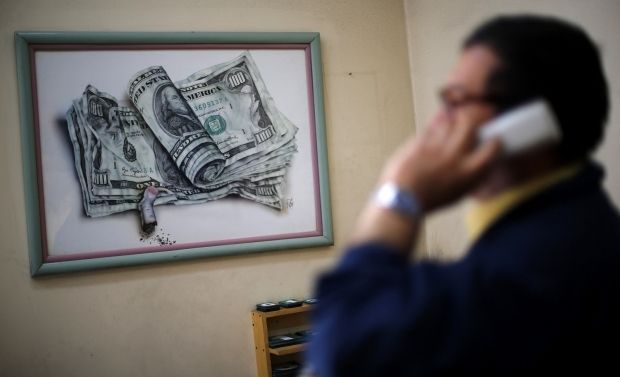
A lot has already been said and written about these cases. There’s a number of cases related to the State Food [and Grain] Corporation [of Ukraine], with two of them already been forwarded to court. There’s OPP [Odesa Portsie Chemical Plant], Electrotyazhmash – the cases have also been submitted to court. You can check out the NABU website or our registry of criminal proceedings, there is everything there.
Generally, corruption in state enterprises is one of the major problems we need to tackle. I mean, not only the SAP but also the Cabinet and the country as a whole. Destroying some corrupt scheme just to have it replaced with a new one is not fighting corruption. After all, even when corrupt gas schemes have been eliminated – I mean, related to Ukrgasvydobuvannie [MP Onyshchenko case], we need to carefully monitor the situation, to prevent them from being renewed and not to let the new ones emerge.
Rather controversial is t has been provoked by the issue of settlements with the investigation. Some witnesses who are willing to tip the law enforcers about "bigger fish" can also get quite a long prison term, like in that story with Judge Chavus. How can this encourage them to go for the settlement?
First, such witnesses should remember not to look for illegal profits. If a person testifies against "bigger fish," they get some easing in return, not exemption from liability.
Secondly, we do not care where we receive information as long as it confirms the crime. I remember how we busted the rector of the National Aviation University on a bribe. In that case, we got a tip-off from an odious former MP. That was an odious figure because he previously represented the [pro-Yanukovych] Party of Regions. But this does not mean his testimony doesn’t matter. If a person provides evidence of a crime committed, we have to react despite their reputation.
We introduced settlements with the investigation in 2012, but this mechanism started actually working only in 2016.
What about a potential settlement with Onyshchenko? Is it possible at all?
I can’t imagine that we settle with Onyshchenko. Even if he pays UAH 3 billion [UAH 3 billion is the amount of damage caused to the state as a result of corrupt schemes of embezzlement during the extraction and sale of natural gas in the framework of joint activity contracts with JSC Ukrgazvydobuvannia]. If pays the sum, it will be an extenuating circumstance.
But he’ll be telling you that he tips the investigation about the "big fish" – the President ...
The value of any testimony is in their base. People can say anything. Tomorrow someone might get caught with some crime, and they will be saying that it was the president who gave them instructions, while, in fact, they have never seen him, only on TV.
Regarding Onyshchenko, over the past six months, there has been a lot of rumor in relation to his “records,” which no one heard. There are some records – with [MP Oleksiy] Dovhiy and [recently arrested former MP and Arseniy Yatsenyuk’s ally Mykola] Martynenko – but where’s the case?
Recently he said a lot to the prosecutor via Skype. But he shied away from answering all questions. For example, asked what currency he used while paying for the appointment of certain officials to certain posts person for such and such a position, or whether he withdrew money from a bank, and which bank it was, and where exactly he brought the money – his responses were “I do not know,” “I do not remember,” “Let’s do it later and first settle...” At such moments, you realize that someone’s trying to fool you. The last thing you want to do is to fall for something like that.
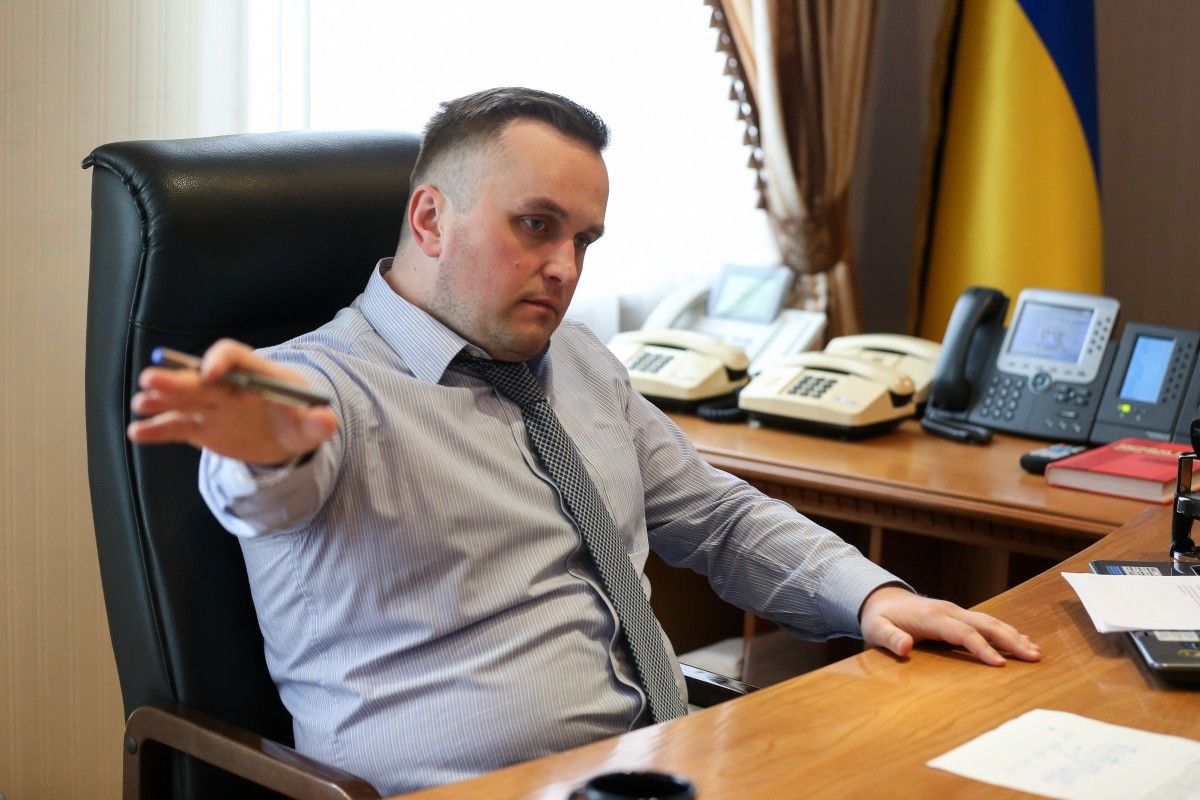
If you have factual evidence, give it to us. Pass it through your attorneys if you fear to do it personally (and you do fear do so). Instead, Onyshchenko offers to hold meetings in London, the other day it’s Spain… Well, wait a second! SAP is not a travel show. We can’t chase him Tom and Jerry style.
He may as well keep bargaining with other forces besides you...
That's his right. He can bargain anywhere he likes. But, according to the law, it’s the prosecutor who settles. And I’m not going to "bargain" with him. We’re not in the street market here. He’s not a seller, and I'm not a buyer. If there’s some evidence, give it to us, we’ll check it. If not, there’s no point in this conversation.
How many settlements have already been signed with the investigation as a whole?
About a dozen. For example, in the Onyshchenko case, a number of settlements was signed with the persons involved, who had no direct relation to the embezzlement of gas. It was, for example, people who did not realize their functions, the persons who provided their passports and someone registered firms on their names...
But will they also be prosecuted?
Yes, everyone has to answer for their crime. If you are a party to this scheme but your role was reduced to transporting some bag with a million dollars in cash from one location to another, you are responsible only for having committed this act. But if you are the mastermind behind the scheme, if you are getting long-term profits, you should bear responsibility as the organizer of the crime.
Someone in worked in the accounting office, someone was carrying the money, someone was a driver. We can’t blame everyone in embezzling UAH 3 billion; they all must answer for their own misdeeds. The task of law enforcement bodies, the prosecutors, is to prove in court that a particular person has committed a particular offense, being part of the single scheme.
Would wiretapping help establish most of such facts? There has been a lot of controversy regarding this lately...
Personally, I believe that the NABU should be allowed to act independently in wiretapping individuals. Another issue is control, NABU must not be allowed to abuse that right.
And who should provide such control?
Those who approve [wiretapping] requests. In particular, the prosecutors.
And what if the prosecutor is influenced by someone?
Who influences the prosecutor?
For example, someone who come to the SAP and says "I'm from Kononenko!" [influential member of the pro-presidential party]. Has this phrase ever been voiced in your office before?
No, that’s the first time. And, if you are “from Kononenko,” my congrats (smiling).
In general, such a pyramid of "who will control whom" can be as high as you wish, but there are mechanisms enshrined in the law, and we can also look at the experience of strong western democracies.
But we all understand that this has been triggered by a crisis of confidence, and the issues of influence and attempts to put pressure will continue to arise in the future, right?
Indeed, there is a crisis of confidence. Why? That’s because in Ukraine there are still some things that are totally unacceptable in a civilized world.
Let's take wiretapping. This is a closed cycle. There is an investigator who wants to tap communication channels, there is a prosecutor who sanctions the move, and there is a court that gives a permission with its order. That is, there are three branches, three people responsible for what’s going on. And if there was a leak, it happened from someone of the trio. It is very simple and the person responsible is held accountable.
If it’s so simple, why do you think there’s no support for this issue?
Ask our legislators. The issue of independent investigation and independent wiretapping is actually a matter of just three words in one sentence in the Criminal Procedural Code. Why is there no support? I have no idea.
Well, our deputies say, “Why does NABU need this wiretapping? How does it help?"
I will say this: give it to us, and you’ll see how it will.
Returning to the topic of various visits and visitors… People who feel that the case is about to be launched against them, do they try to get a hold of you, talk to you, and settle?
In fact, it’s not hard to get an appointment with the SAP. Another thing is that nothing will change after this visit if there has been a crime committed. Although, I understand, people tend to try to sensationalize things. But there’s no need to make a sensation out of it as there is none.
Some even accuse Kholodnytsky of visiting the Presidential Afdministration…. Show me, when?
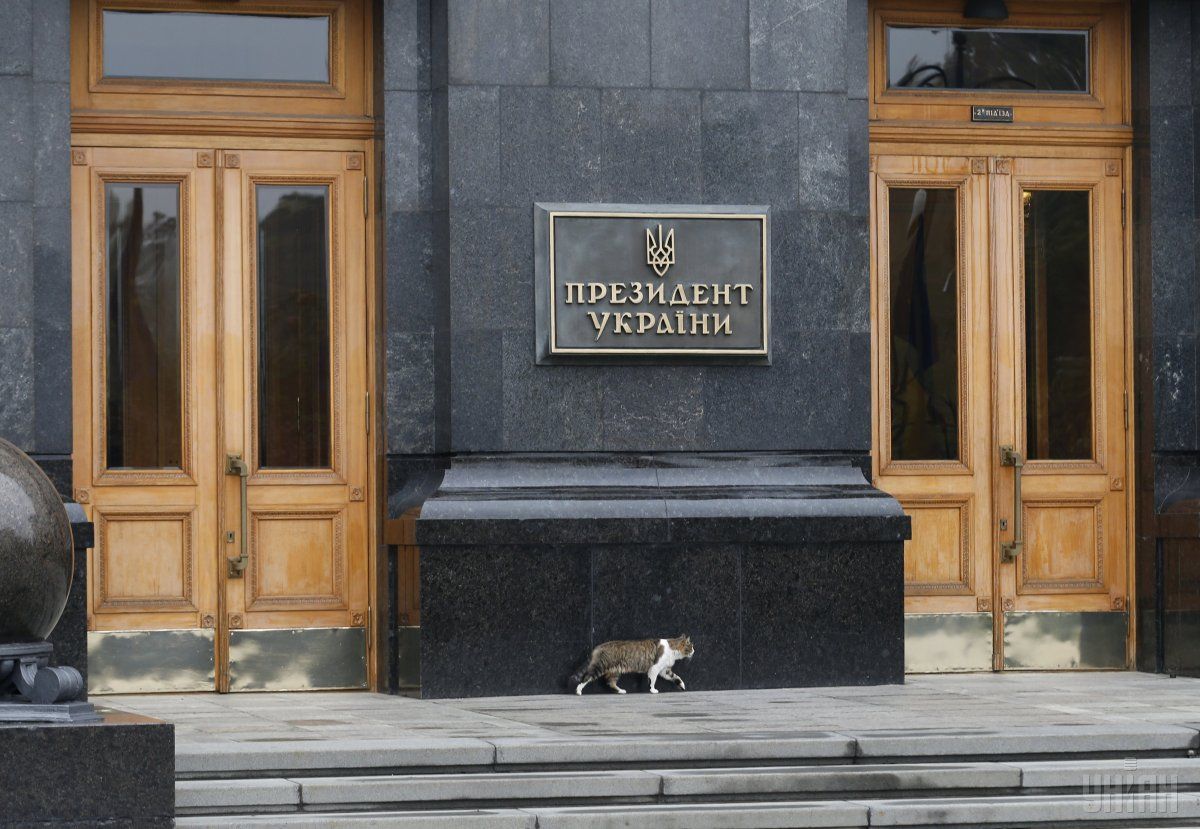
Does he visit the PA?
This year Kholodnytsky has not been to the PA. But they take some footage taken in 2015-2016 and keep broadcasting it [as if it were a fresh video].
Incidentally, the SAP Headquarters is located quite close to the U.S. Embassy. There are even rumors that prosecutors pay visits there. Do the American investigators assist the SAP?
I understand you want to hear yet another sensation from me but you won’t.
There are international partners providing assistance to Ukraine. For SAP, it’s not a financial assistance. For example, the U.S. government sponsored (let's call it so) the purchase of equipment, including PCs. They also often finance various training sessions involving experts not only from the U.S. but also Europe.
But please, don’t think that if we get help from our foreign partners, we will do everything the way they want. Their assistance does in no way affect the final decision-making by prosecutors. Everything happens according to the law.
Also, the public has no consensus on the creation of the Anti-Corruption Court. When can I expect it to be created? What do you personally expect from it?
We are often criticized that there are no verdicts in our cases. But this neither NABU’s fault nor the SAP’s. The judiciary is an independent branch of power. Fortunately, long gone are the times when we had a supervision function over the courts, the practice established in the Soviet Union. The prosecutor in the trial is equal in their rights with the side of the defense. I can’t just come to judge and tell them to appoint a hearing on some certain day because it would be convenient for us or schedule daily hearings simply because we need more verdicts.
Besides, it so happened that a judicial reform has started, and one-third of the courts are under-staffed right now. Given that any NABU case requires three judges, and given the calendar (one of three judges will probably be on vacation), consideration of cases will be delayed for several months. As a result, we will see hearings in September. How should I explain the people that there are no verdicts issued?
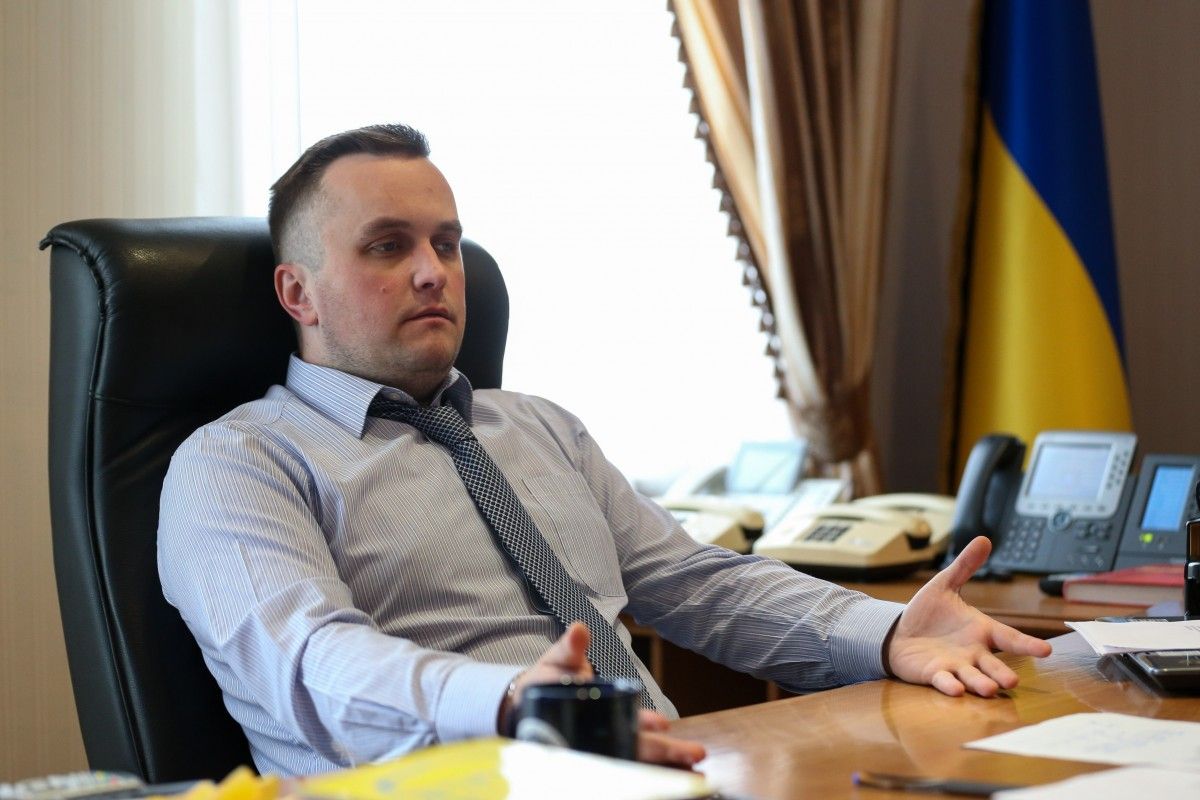
As an example, we can look into the case of the Odesa Portside Chemical Plant. There was a hearing on April 5, and the next one is scheduled for May 22, that is in almost two months! And then there will be summer, and the judges will start going on vacations. That is, there won’t be any hearings until September. We know that from the experience of last year.
Therefore, we need the Anti-Corruption Court. I can’t say whether we will need it in 10-15 years, but now the problem is that we don’t need it somewhere in 2018-2019, we’ve already needed it back in 2016..
And if we remain realists...
... Then I do understand it will not be created in 2017. And I’m not sure it will be established in 2018, either. But this does not mean that we don’t need it, and neither does it mean that the SAP locks down its doors and says, "until the anti-corruption court is established, we refuse to work, but please continue to pay us…"
What achievements are you proud of?
I managed to launch the Anti-Corruption Prosecutor’s Office. I also managed to hold competitions and recruit high-quality professional prosecutors. What could create, if you will, an atmosphere where people do not hate each other but simply do their job. This is a very difficult task for any manager.
I am proud of a very nice and friendly team we have. But at every meeting, I tell them: guys, I will stand for you rock solid, but if you have committed a crime, I'll be the first one to require that you get locked up. On the other hand, when someone pours mud on SAP staff for no reason, I will defend each of our prosecutors. And when the "activists" asks, who bears responsibility, I will answer that it’s Kholodnytsky.
When the prosecutor knows that the chief supports them if they are right, they feel they can work. When the team is aware of this, the things are going well.
I am proud that we were able to forward to court our first cases within the first year of our work. We started from scratch… When someone tells me that in two years we have no results, I always tell them, “Please, join! Pass a competition and show your results, we still have seven vacancies!”
Is there is something you’re ashamed of?
Thank God, there have not been any shameful acts of my subordinates for which I would have that feeling of shame, and I’m not ashamed of my team.
As for myself, perhaps a I’m a bit ashamed of spending so little time with my family. But this is the reality of life.
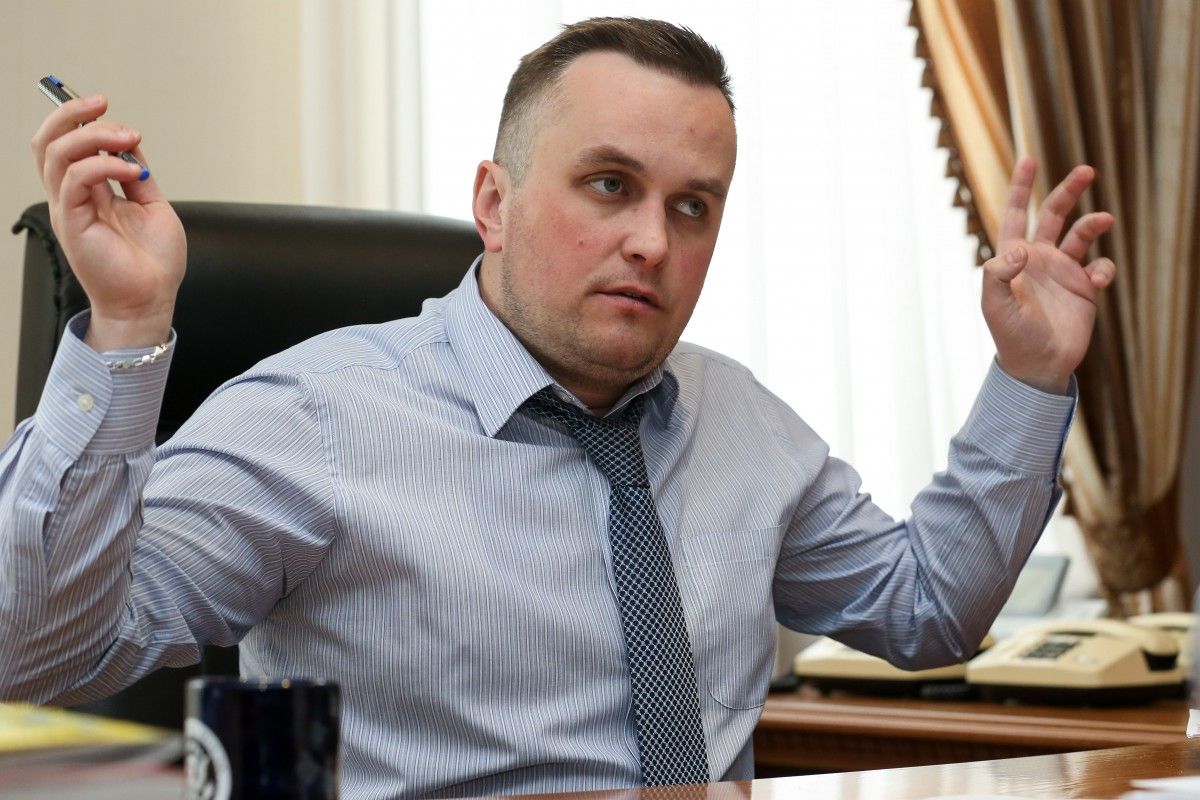
And what about in a professional sense?
I do not see grounds for shame over this year and a half. There were some cases where something could have been done differently – not to change them radically but to make things a bit differently. And this is not a cause for shame. It’s only those who do nothing that make no mistakes.
And what if there are acquittals in anti-corruption cases?
Acquittal in court is not something to be ashamed of. Any trial is a competitive process. A prosecutor is a filter that checks the case for legitimacy, to ensure that the evidence is valid and appropriate, and legally obtained. After all, in a courtroom there’s only a defendant, a lawyer, and a prosecutor. And there’s the evidence that has been collected.
And if there is no evidence, the case will be closed. That’s what was in the case of the acting chief sanitary official [Svyatoslav] Protas [arrested last summer]. I closed the proceedings because there was no evidence. This is what the law says. If you go to court with a poor evidence base and then everything falls apart in this court, it’s the prosecutor who is responsible.
That is, it’s the one who signs procedural documents that is responsible for the state of the investigation, not someone who goes bla-bla-bla at different meetings, briefings or off-record conversations. And if our suspects appeal to the ECHR, the defendant will not only be the state of Ukraine, but also certain people. Not those who were speaking on camera, but those who put signatures in those procedural documents – prosecutors and detectives. We want our evidence and the verdict to be lawful and fair, not to be annulled by ECHR.
Tatiana Urbanskaya

